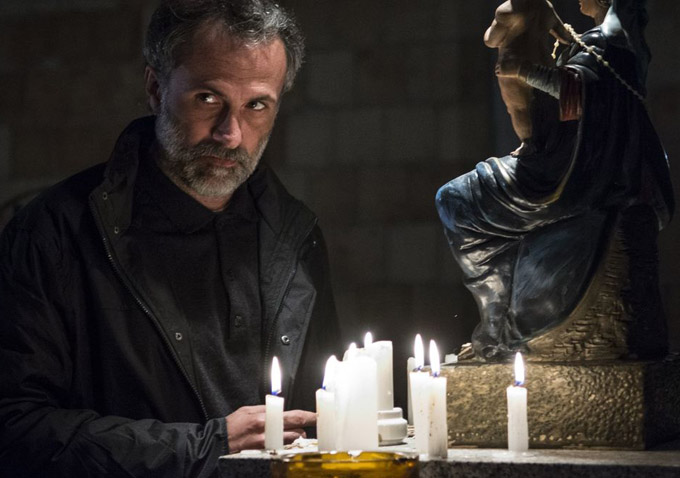 “Black Souls” is a solid example of the recent string of Italian mob dramas that utilize a somber and reflective tone as opposed to the more flashy and stylized approach of American crime epics. Sure, both styles include tragic third acts that emphasize the destructive nature of a life of violence, but “Black Souls” ignores the attractive allure of the mob life and skips directly to a monotone depiction of an empty and soulless existence that can only end in tragedy.
“Black Souls” is a solid example of the recent string of Italian mob dramas that utilize a somber and reflective tone as opposed to the more flashy and stylized approach of American crime epics. Sure, both styles include tragic third acts that emphasize the destructive nature of a life of violence, but “Black Souls” ignores the attractive allure of the mob life and skips directly to a monotone depiction of an empty and soulless existence that can only end in tragedy.
READ MORE: Witness The Drop Off In This Exclusive Clip From Award-Winning Mafia Film ‘Black Souls’
Perhaps after an entire country endures so much violence and pain over many centuries, romanticizing the lifestyle that brought upon that very pain gradually turns into a less and less attractive option. When the allure of this life is stripped down to nothing but brutal honesty, what we’re left with are soulless people operating on greed and power, trapped in an ugly cycle of violence that never ends.

“Black Souls” begins as a fairly standard mob drama, with characters that don’t veer too far away from their archetypes, and gradually turns into a self-reflective study on violence before capping everything off with a haunting but perhaps tragically necessary finale. When we meet the three brothers at the center of the story, two of whom are power players in the notorious Ndrangheta, a real life organized crime syndicate operating out of Italy, we think we know exactly where the screenplay is headed.
Luigi (Marco Leonardi) is the hot-blooded power and violence junkie, the film’s version of Sonny Corleone if you will. Every Sonny needs a Michael, who comes in the form of Rocco (Pepino Mazzotta), the smart and calculated brother who has issues with his family’s chosen profession, but ends up having both feet planted deep into its muck nevertheless. Luciano (Fabrizio Ferracane) is the only brother who flat out refuses to join the mob and struggles to peacefully live his life as a farmer.

He struggles, because the mob life always has a way of finding him despite his best efforts. His son Leo (Giuseppe Fumo) idolizes Luigi and wants to become a gangster himself. In order to perhaps prove his worth to Luigi, Leo engages in a seemingly harmless prank that snowballs into a massacre that might destroy entire families: He shoots the windows out of a store owned by a rival mob family. That’s it. That’s all it takes for the bodies to start piling up.
Even though they belong in different genres, “Black Souls” shares a lot of the thematic elements of 2013’s great indie “Blue Ruin." Both are about how a minor disagreement or incident can lead to devastating destruction when “An eye for an eye” becomes the operating philosophy. Just like in “Blue Ruin,” “Black Souls” shows the unfortunate reality behind how hard it becomes to stop the cycle of violence once it grows into its own entity and moves beyond the specific grievances of the parties involved. In time, people forget what began the war in the first place.

What really sets “Black Souls” apart from similar fare is how unpredictable it becomes as the story moves along. Director Francesco Munzi deliberately plays with the archetypal characterizations of the three brothers in order to lull us into a predictable third act where they might band together to defeat the rival family. Yet as Rocco is fed up with the amount of loss that’s being incurred by this blood feud, the family somberly drifts apart until we reach a shocking climax that might also represent the only viable way for the cycle of vengeance to stop.
Munzi uses a deliberately slow and reflective pace as he strips away the usual romanticism of the genre. His visual approach is to drench the frame in earthly sepia tones while steering away from using a lot of bright colors. The cast is uniformly solid, with Fabrizio Ferracane’s soulful performance as the film’s centerpiece. “Black Souls” might not be as memorable as 2008’s formidable crime epic “Gomorrah," but it should more than please fans of this style of mob dramas. [B+]

